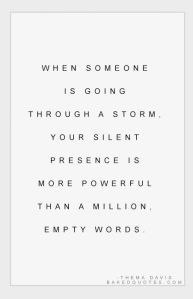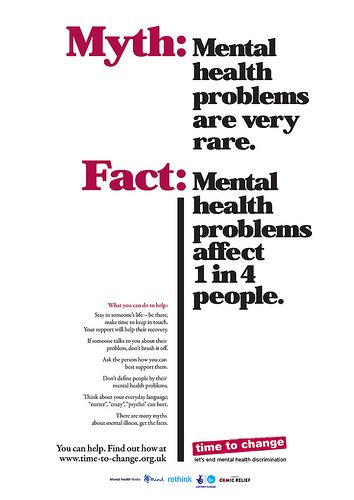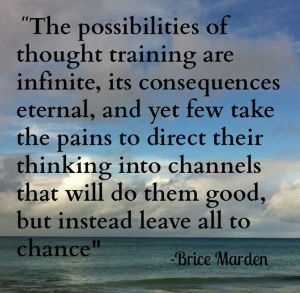30 Things to do to Yourself
The other day I came across an article that listed 30 things that people needed to stop doing to themselves in order to feel happy and fulfilled. It proclaimed, “when you stop chasing the wrong things you give the right things a chance to catch you”. You can see the full article here if you’re interested.
The thing is, the language used in this post is worded in the negative. Don’t do this, don’t do that. When I read things phrased in this way I often end up wondering what I CAN do if not the things listed. The brain cannot tell the difference between them. If I told you to NOT, under any circumstances, think about a red car, I’m willing to bet that the first thing that comes to mind is a red car.
So, when we tell ourselves NOT to do something, our brains literally block out the “NOT”. Have you ever tried to tell a child not to run on wet concrete? I bet they run faster! Have you tried telling a child not to eat the chocolate bar in the fridge? I bed the next time you walk by, the chocolate bar will have disappeared and you can see smears across his or her mouth. If you want a child to follow your instructions, you need to tell him/her what TO do, rather than what NOT to do. Walk along the concrete. Eat the grapes (and put the chocolate bar out of sight).
So, I decided to rewrite it. And rephrase it. Let me know what you think:
- Spend time with happy people who support you – spending time with people who drain you is tiring! Find some
 people will stand by you when you’re at your worst.
people will stand by you when you’re at your worst. - Face your problems – Yes, it’s hard work. Every person on the planet finds it challenging to face difficult situations. We are built to flounder. To feel emotions such as sadness or hurt. To stumble. Learning and adapting helps mold us into the person we are meant to be.
- Be truthful with yourself – it really does help you make those adjustments and to step up when you face difficulties.
- Put your own needs first – you are special too, and you deserve to be taken care of. Allow yourself to follow your passion and do something that matters to you.
- Be your true self – allow yourself to be who you really are and you will naturally attract the right people who love you.
- Allow yourself to move forward and take new opportunities.
- Make friends with failure – you learn so much more from getting things wrong than getting them right. Every success has a series of failures behind it. Every time you fail, you get closer to success.
- Let go of past mistakes – mistakes help us find the things and the people who are right for us. Every error teaches you something and prepares you for the things that are right for you. Right here, right now, you have the power to shape your future.
- Allow happiness to find you – the things that satisfy us are totally free. Take note of the little things and allow them to fill your heart with joy.
- Look for happiness within yourself – looking to others for your happiness is fraught with danger and opens you up to being controlled by the other person’s moods. Create your own stability and own your own power for happiness. It starts with what is on the inside.
- Be prepared to go after what you want – you can’t make it to your goal unless you take the first step. Take some risks. Make decisions and take decisive action on what you want.
- Allow yourself to grab opportunities outside your comfort zone – it’s common to feel uncomfortable when
opportunities present themselves. You may not feel ready, but you don’t have to be. Feel the fear and do it anyway.
- Fall in love for the right reasons – there is no need to rush. Allow it to happen when you’re ready, not when you’re lonely.
- Be open to new relationships – even when old ones didn’t work. There is a purpose for everyone you meet. Some are to teach you what you don’t need in your life.
- Run your own race – when you compete with others you do yourself a disservice. Competing takes you away from being your true self.
- Count your blessings – you always have something that is worth feeling blessed for. Why would you bother keeping track of someone else’s blessings when you have your own?
- Be prepared to get back up when you fall down – life is full of challenges and falling down is inevitable. When you reflect back on those moments you’ll often find they led you to a better place or situation.
- Let go of grudges – allow love to fill your heart and let the hate go. When you hold onto grudges you end up hurting yourself more than the person it’s directed toward.
- Raise your standards – if you keep your standards above those of the people around you, your heart will always be full.
- Give yourself permission to make your own decisions – if you listen to your heart you will always know what to do. There is no need to justify or explain yourself to others.
 Take a break – especially when you feel like you don’t have time for one. The perfect time to take some breaths is when you feel the most stressed.
Take a break – especially when you feel like you don’t have time for one. The perfect time to take some breaths is when you feel the most stressed.- Find the beauty in the small moments – the best parts of your days will be the small moments. Enjoy them.
- Enjoy the imperfections – nothing is ever perfect. It doesn’t exist.
- Embrace challenges – some things are not easy. Especially the things that mean the most to you. Embrace the challenge and work for what you want.
- Allow yourself to cry – it’s ok to fall apart sometimes, you don’t have to suck it up all the time. You don’t need to have things going well all the time. Crying is cathartic and healing. It gets rid of toxins in your system and cleanses your emotions.
- Take responsibility for your life – and your decisions. When you blame others you allow them to control you. Own your power by owning your decisions and actions.
- Choose what you do wisely – trying to be everything to everyone will very quickly drain you of your energy and burn you out. Make your choices based on the things that are most important to you.
- Let go of your worries – at least some of them. Ask yourself if this situation will matter in one year. What about in three years? Or five? If the answer is no, let it go.
- Focus on what you want to happen – rather than on what you don’t want to happen. By doing this you train your brain to look for the opportunities and the blessings.
- Be grateful – find 5 things each day that you are grateful for. You’ll soon find yourself inundated with the beautiful blessings in life rather than the missing links.


















